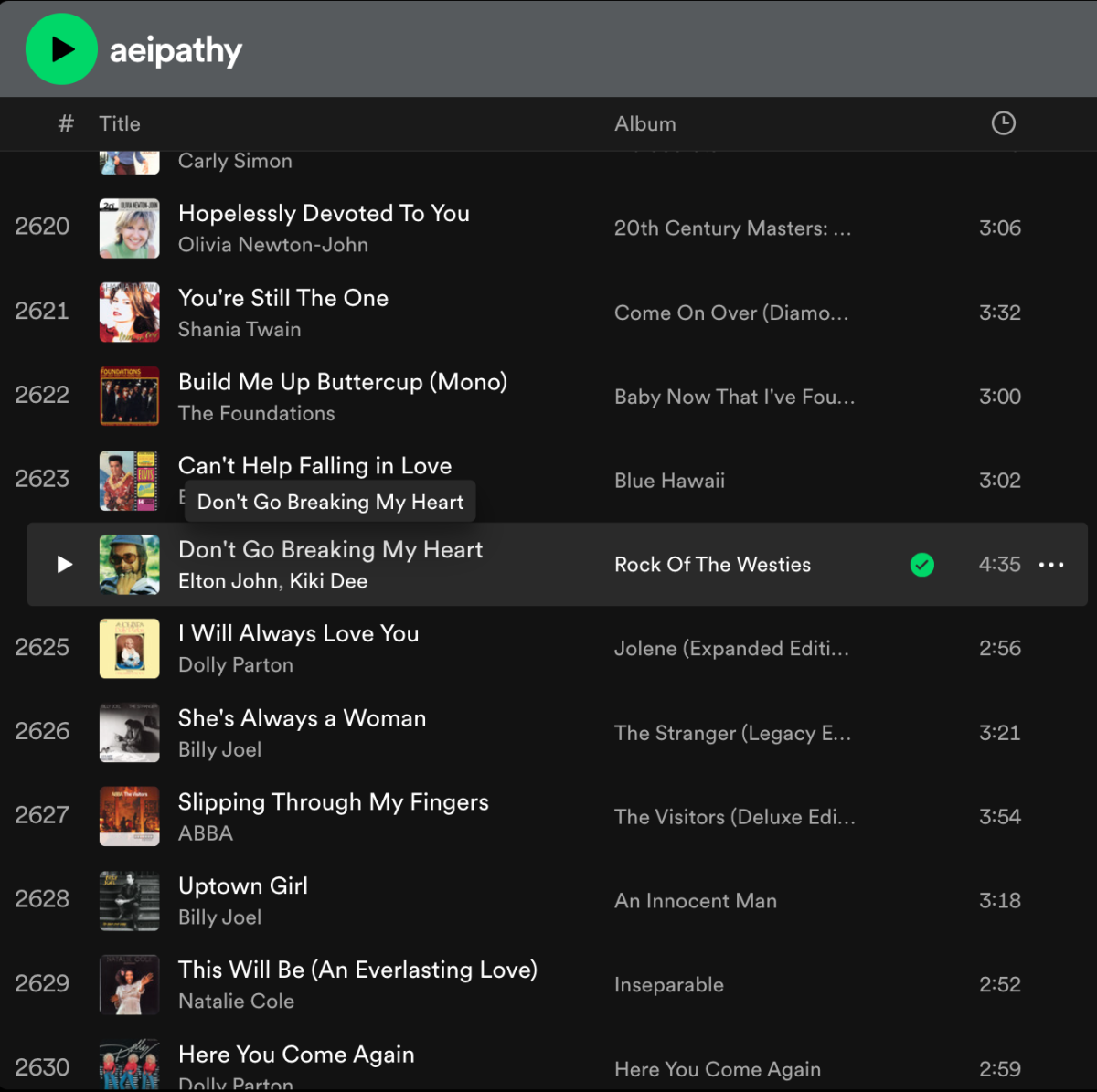I Wanna Dance With Somebody was a seemingly uninformed representation of the life of Whitney Houston
One of the movie posters for the film, an iconic embodiment of Whitney.
The exact moment we heard there would be a movie about Whitney Houston’s life story, my mom and I started fangirling. We automatically assumed it would be phenomenal, but, as I would later find out, we were mistaken.
I Wanna Dance With Somebody features Naomi Ackie as the iconic Whitney Houston through her journey to stardom. Though Whitney could never be considered a waste of time, the film seems almost like a backhanded judgment of her strength of character.
Houston’s mother, Cissy Houston, played by Tamara Tunie, is revealed to be one of her prime sources of motivation in the beginning as she exercises her talent, as well as the reason for Whitney’s discovery by her producer, Clive Davis (Stanley Tucci).
Though Whitney could never be considered a waste of time, the film seems almost like a backhanded judgment of her strength of character.
From the very beginning, the film had been set up in a weird way. It begins in 1983, when Houston was 19 years old, which was strange to me, considering the fact that the early childhoods of most subjects of biopics are oftentimes a crucial piece to the story being told. From then, it progresses over the following years to detail her rise to fame.
The thing that caught my attention almost immediately after Ackie had started singing was, ‘wow, this sounds exactly like the real Whitney.’ That’s because it was the real Whitney. Upon some research, I became informed that 95% of the singing in the movie was actual recordings of Houston’s singing dubbed into the scene. Honestly, I’m not as upset as I could be about that—nobody could compare to her vocals, and to try would end miserably. However, it was a shock to me because it had been gone about differently in similar biopics, including Elvis and Bohemian Rhapsody.
As for the information about her personal life, it was a very narrow-minded model of Houston’s struggle with addiction, as well as her love life and family troubles. In the movie, she is portrayed as someone who doesn’t care to change for the better, when that’s the opposite of reality.
The woman was in love with her best friend and eventual manager and creative designer of her company, Robyn Crawford (Nafessa Williams), but is shown at points to be embarrassed by this. Following the end of their romantic relationship, Houston is seen as jumping into a new relationship with her future husband, Bobby Brown, played by Ashton Sanders. In the real event, this was a very strenuous, drawn-out, and emotional ordeal for the singer, and it is believed by some that many of Houston’s songs were directed toward Crawford.
Similarly, there is a scene that shows an intervention between Davis and Houston, but she seems to brush him off as if she doesn’t want his help. In reality, this was true for a brief time, but in the months leading up to the musical icon’s tragic death, she made a valiant effort to get better on that front.
All in all, there are countless holes in the plot, and the story doesn’t take a deep dive into her personal life in the way that it should have. For instance, her daughter, Bobbi Kristina Brown, played by Bria Danielle Singleton—as well as two other actresses during her younger years—is barely a thought in the film, and instead merely a background prop on the set.
The acting in and of itself is beautifully done, but the story line is where I have a bone to pick with the creators. Stanley Tucci’s acting was a poignant embodiment of the pain associated with the industry, despite the beauty that can be present. My favorite part of the film was both being reminded of Houston’s iconic vocals and Tucci’s portrayal of an emotionally strained producer in a corrupt field.
I was so excited to watch a movie about one of the greatest musically-talented women of the era, but I was genuinely just disappointed by the disrespect aimed toward one of the most tragic stories in music history.

Eva LaBeau is a senior entering her second year on The Central Trend. She takes on everything she does with great passion, specifically when relating to...


























































































